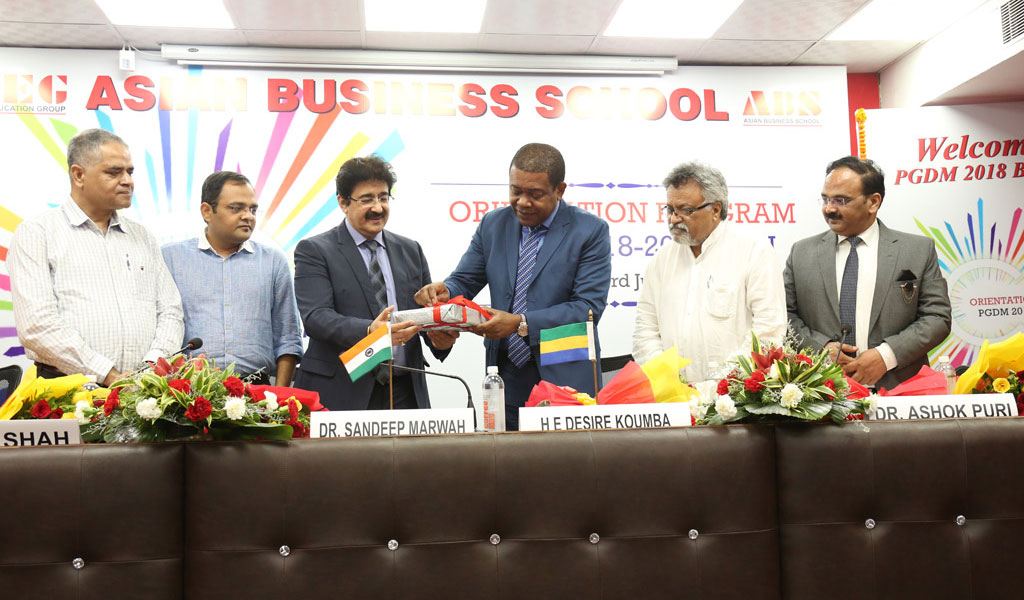At Asian Business School, we believe in creating the future leaders through quality education. The Research and Development (R&D) Cell here operates with the vision to become a center of excellence in management education, by focused research pursuits through interface with industry and academia. ABS International Journal of Management is one such initiative in this direction. It is an international, open access, peer-reviewed, bi-annual journal. The journal contains research based papers, articles, case studies, book review and summary of PhD thesis recently completed. For this, articles are invited from academicians, practicing managers, professionals, research scholars, and students engaged in research. The journal is a worthy reference for corporate and academicians to whom it is circulated. Recently we have come out with 6th Vol. (Issue 1) in the month of June 2018, which was released during Orientation Program of the PGDM 2018-20 Batch held on 2nd July 2018. The journal was released by Prof. Sandeep Marwah (President, Asian Education Group) and the chief guest of the event H. E. Désiré Kumba (Ambassador, Republic of Gabon) in the presence of dignitaries Dr. Ashok Puri (Founder & Managing Director Lean India Consulting Group) Mr. Manan Shah (Director – Marketing, TrueCaller) Mr. Abhay Kapoor (Lead – HR India Operations Amazon.com) and Dr. Lalitya Vir Srivastava (Director, Asian Education Group)
We are constantly working to achieve research driven outcomes by organizing various activities under the Research and Development (R&D) Cell in terms of FDPs, National Seminars, International Conferences, MDPs and publication of Journals. Through the years, the aim has been to create a platform where ideas, concepts and applications related to various fields of Business Management like Marketing, Finance, Human Resource and Information Technology can be discussed and shared.The objectives of the Research and Development (R&D) Cell are – firstly, to create an environment conducive for development of research aptitude and skills among the faculty and students, and facilitate research through infrastructural support. Secondly, work closely with industry for developing better processes, systems or services which may lead to enhanced productivity and provide a forum for knowledge dissemination; and ultimately encourage interaction between academia, industry and government.




